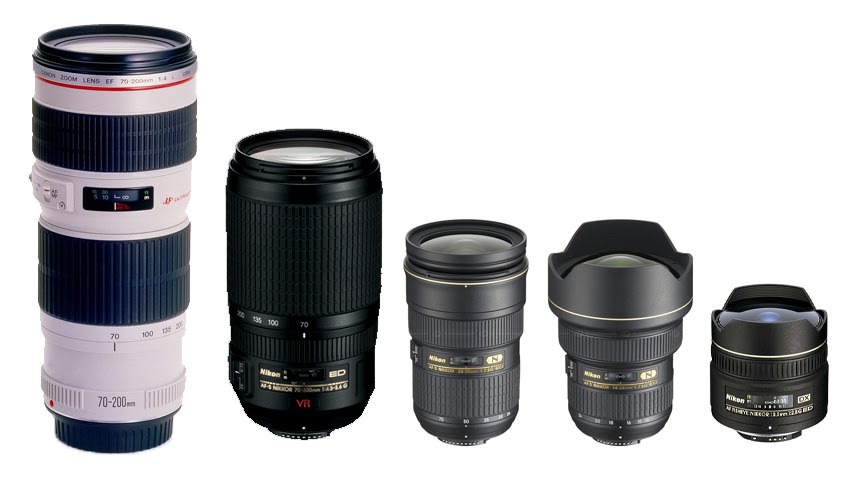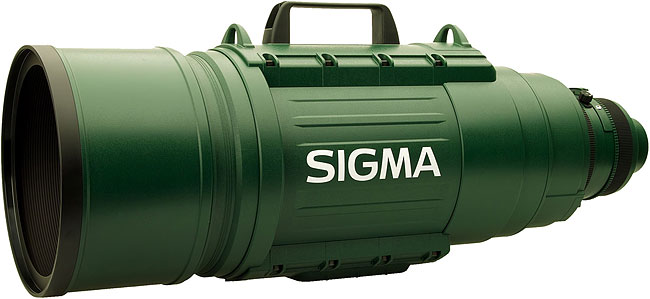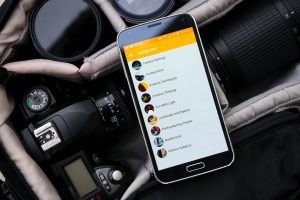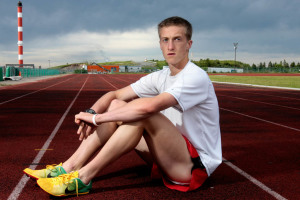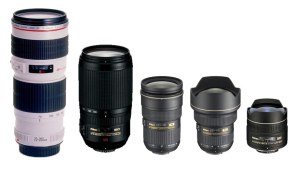 Most camera kits come with a wide angle-normal(18-55mm) or a wide angle-short telephoto(17-85mm). Which is great…if all you want to do is wide shots and the party photos. Here a guide to what to look for when buying other lenses, including telephotos and macro!
Most camera kits come with a wide angle-normal(18-55mm) or a wide angle-short telephoto(17-85mm). Which is great…if all you want to do is wide shots and the party photos. Here a guide to what to look for when buying other lenses, including telephotos and macro!
TELEPHOTO LENSES
You will want to have a minimum 70-300 telephoto lens for portraits, candids, action, and landscape and nature shots.
You could buy the Canon or Nikon models, but if you like doing close up shots, but can’t afford a macro lens, I would recommend looking at Tamron or Sigma models that have a 1:2 macro (close focus).
Here are the lenses that have the 1:2 macro, which will allow you to focus on 2 inches in the frame. You will have to find the model that fits your camera brand.
Tamron 70-300 $230
Sigma 70-300 $230
Now, there is nothing wrong with the name brand lenses, but they don’t have the macro feature.
IMAGE STABILIZER/VIBRATION REDUCTION TECHNOLOGY
One newer feature on lenses is a form of stabilization. This technology will allow for sharper images when handholding larger lenses. However, there is a big misconception about this technology, in that it will help make moving subjects sharper. IT WILL NOT!
What the stabilizer does is compensate for the movement of the lens. When you are handholding a zoom lens, any movements you make are exaggerated, resulting in camera shake blur. With the stabilizer on, if you move up, it moves down. You move left, it moves right. This will allow you to use slower shutter speeds and still still get sharp images, OF NON MOVING SUBJECTS ONLY! Anything moving in the frame will be blurred from their motion, not the motion of the lens.
The drawback to buying the stabilized lenses is the cost. They are two or three times the price. If you do a lot of low light, handheld shooting, it works really well. If not, the money is probably better spent on a flash or other lens.
On Nikon, it’s called VR(Vibration Reduction), Canon it’s IS(Image Stabilized), Sigma it’s OS (Optical Stablization), Tamron it’s (Vibration Control).
Nikon 70-300 VR $700
Canon 70-300 IS USM $650
Tamron 70-300 VC $600
IF YOU SHOOT SPORTS/INDOORS ALOT
You will want to have lenses that let in way more light than the ones above. Also, when you zoom those lenses, they will darken, meaning you lose an F-stop or even two. When shooting indoor shots, you need a constant aperture(F2.8) That will mean $$$$$!
Nikon 70-200 2.8 VR $2800
Canon 70-200 2.8 IS $2400
Canon 70-200 2.8 NON-IS $1600
Sigma 70-200 2.8 OS $1500
ULTRA WIDE ANGLE LENSES
If you like wide angle shots, there are many lenses that will go alot wider that your kit lens.
Canon 8-15mm $1600
Canon 14mm 2.8 L $2500
Canon 10-22 $750
Nikon 10mm 2.8 Fisheye $750
Nikon 10-24 $1100
Nikon 12-24 $1050
Nikon 16mm 2.8 Fisheye $900
Nikon 14mm 2.8 $1700
Tamron and Sigma both make wide angles.
MACRO LENSES
Most lenses only focus as close as half a meter, but a macro lens will allow you to get extremely close photographs of subjects.
Macro lenses use a ratio to describe how close they focus. Most macro lenses are a 1:1 ratio, meaning that if the subject is one inch in real life, it will be reproduced as one inch on your film/chip. Many zoom lenses offer a macro setting, but they are more likely to be 1:2(half an inch on your film or chip) or 1:4(one quarter of an inch on your film or chip)
Macro lenses come in a variety of lengths, normal(usually 50-60mm) or telephoto(90mm-180mm. A normal macro and a telephoto macro lens are identical in how close they can focus on a subject(1:1), but with a telephoto lens you can stand farther back. ?This is useful because getting in close with a normal macro, you may cast a shadow on the subject.
Nikon and Canon both make great macro lenses. Tamron and Sigma also make macro lenses to fit the various camera mounts. Nikon/Canon’s usually have quieter/faster autofocus than the sigma or tamron, but they do cost a bit more. Personally, I use manual focus most of the time with macro, so I’m don’t really care that much about the fast AF. But if you spend the extra $$$, you can get a macro lens with the IS(Canon Image stabilizer) or VR(Nikon Vibration Reduction) which help with camera shake and will result in sharper pictures.
Of course it all depends on your budget, doesn’t it? Here are some examples:
NORMAL LENGTH MACRO
Nikon 40mm DX 2.8 $299
Nikon 60mm 2.8 $489
NIkon AF-S(faster AF) 60mm 2.8 $750
Sony 50mm 2.8 $519
Pentax 50mm 2.8 $549
Sigma 50mm 2.8 $449
TELEPHOTO MACRO
Nikon 105mm VR 2.8 $1100
Canon 100mm 2.8 NON-IS $900
Canon 100mm 2.8 IS $1300
Sigma 105mm 2.8 OS $1200
Tamron 90mm 2.8 $469
Sigma 105mm 2.8 $570
LARGER TELEPHOTOS
Sigma 150mm 2.8 $899
Canon 180mm 3.5 $1700
Sigma 180mm 3.5 $1249
Tamron 180mm 3.5 $1399
So as you can see, the bigger the lens, the bigger the $$$$. For me, the Tamron/Sigma is the best combination of quality/price, but if ye have the wealth, go for the Nikon or Canon model with the VR/IS. The middle telephoto range (90/100/105) will double as a great portrait lens!
BUYING BIGGER LENSES
Most of you have 70-300mm lens, and probably find that 300mm really doesn’t get you close enough to most animals or many landscape subjects. So you probably want to buy a bigger lens. Here are some options with ballpark prices.
For Canon cameras, here are some options:
Canon 100-400mm 4.5/5.6 IS $3000
Canon 400mm 5.6 $1800
Nikon options:
Nikon 300mm F4 $2000
Nikon VR 80-400 F4.5-5.6 $3000
Nikon VR 200-500 $1800
Other brands:
As always, Sigma and Tamron makes lenses that will fit Nikons, Canons, and Pentax, and will work properly with your cameras autofocus and metering.
Sigma 150-500mm F5-6.3 OS $1300
Sigma 150-600mm F5-6.3 OS $2800
Tamron 150-600mm F5-6.3 $1050
As you can see, the ##-500mm/600mm Sigma and Tamron lenses can get you closer than the Canon and Nikons, and cost quite a bit less in most cases. I’ve used the Canon 100-400 and the Nikon 80-400, they are both really awesome lenses! And Nikon just put out their own 200-500mm, and it’s pretty sweet too!
And if you’ve got $30,000 kicking around, you can buy ones of these:
SIGMA 200-500mm F 2.8
Now, the lenses I’ve listed are only good for outdoor shooting with good light(full sun, or bright overcast). If you want to shoot sports, you need to buy lenses with constant apertures of F4 or F2.8($$$$$$$$$-like 5-10 thousand dollars!)
MORE TIPS BELOW!
I hope you find these tips useful!
If so, it would be awesome if you would check out my LearnPhoto365 Photography Assignment Generator Apps on the app store and the Google Play store, a unique photography app that’s meant to inspire you to take great photos!
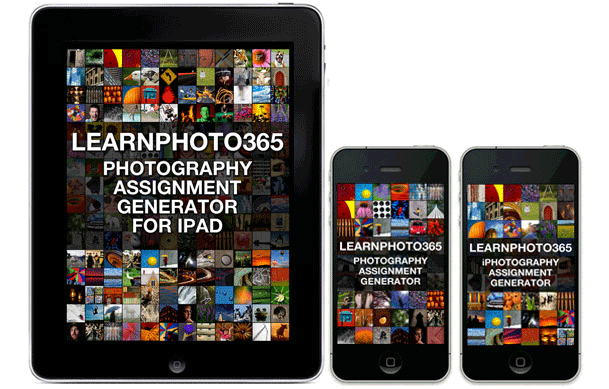 Perfect for anyone taking part in a Photo 365 challenge, there are over a hundred individual assignments and hundreds of thousands of potential random ones. Versions available for iPhone/iPod and iPad, including free versions so you can try them out! Full details, including reviews and tour videos of the apps can be found at www.learnphoto.ca/apps Even if you only download the free version that would help get it up the app store lists!
Perfect for anyone taking part in a Photo 365 challenge, there are over a hundred individual assignments and hundreds of thousands of potential random ones. Versions available for iPhone/iPod and iPad, including free versions so you can try them out! Full details, including reviews and tour videos of the apps can be found at www.learnphoto.ca/apps Even if you only download the free version that would help get it up the app store lists!
WHERE TO BUY
I am a big fan of buying local when possible, for a few reasons.
1) You are supporting a local business
2) If you have any problems, the local people are usually easier to deal with. Buying from an out of province/country dealer, if there is a problem, you will most likely have to pay to ship it back to them. There could also be warranty issues if buying from another country
if you are in Saint John, Future Shop is your best bet as they have brought in more equipment since Applebys closed down…in Fredericton, head to Harvey Studios. (Tell them Noel sent you!) or Ivan’s in Moncton.
If you want to buy online, Henrys in Toronto(also Halifax) is a great store that I’ve dealt with personally and for the Telegraph and had no issues with. Also Vistek.
Avoid buying from ebay, unless it is from a reputable dealer. I’ve seen lots of “great deals” where you seem like you are getting a whole lot of extras…but in reality, it’s a bunch of extra crap. bad lenses, crappy tripods, no name brand memory cards…not worth it.
If buying something off Kijiji or craiglist, make sure you try it out. If the seller won’t let you try it out, that’s a good warning sign…
Once you’ve bought a new camera or accessory , check out some of my photography courses so you can use it to it’s fullest potential! Check them out under the COURSE menu above, onr contact Noel at noel@learnphoto365.com
Here’s the full list of buying guides
CAMERA BUYING GUIDE
LENS BUYING GUIDE
FLASH AND FLASH ACCESSORY GUIDE
TRIPOD AND CAMERA ACCESSORY GUIDE
FUN STUFF TO BUY FOR YOUR PHOTOGRAPHER
Want to make sure you get all the latest posts and info? Subscribe!
Noel Chenier
———-
Photographer and teacher
Connect with Noel on INSTAGRAM or TWITTER or via EMAIL
Photography Assignment Generator Apps now available on the app store!
Noel’s Portfolio
Work Done by My Students!
(1129)

